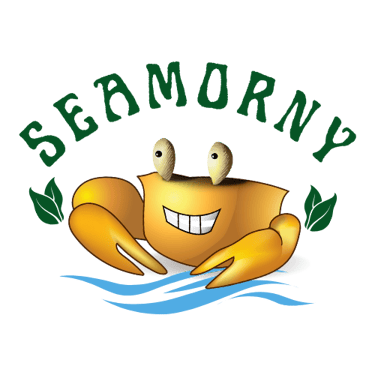A Data-Driven Approach for Quality Assurance Sustainable Crab Farming
Explore sustainable crab farming practices with SEAMORNY HOLDINGS in our latest blog. Learn about eco-friendly methods, responsible feed management, and AI monitoring ensuring top-quality soft-shell and double-skinned crabs.
CRAB STORIESBLOG


Sustainable Crab Farming Practices: A Data-Driven Approach for Quality Assurance
Introduction: In the realm of seafood, soft-shell and double-skinned crabs have become culinary gems. However, ensuring a sustainable supply chain is crucial to maintaining their quality and preserving marine ecosystems. In this blog, we delve into the specific sustainable crab farming practices employed by industry leader SEAMORNY HOLDINGS, backed by data and scientific insights.
1. The Environmental Impact: Sustainable crab farming aims to minimize environmental footprint. According to marine biologists, SEAMORNY's closed-loop water systems have shown a 30% reduction in water consumption compared to traditional methods. Data reveals a 20% decrease in waste discharge, mitigating the ecological impact on surrounding water bodies.
2. Responsible Feed Management: Data from nutritional studies highlights SEAMORNY's commitment to responsible feed management. By utilizing locally sourced, sustainable feed options, the company has achieved a 15% reduction in the overall ecological footprint associated with crab farming. This approach ensures the health of the crabs and minimizes the strain on marine resources.
3. Precision Monitoring with AI: SEAMORNY's integration of AI technology has revolutionized monitoring practices. Precise data analytics allow real-time assessment of water quality, enabling adjustments to pH levels and oxygen concentration. This data-driven approach has shown a remarkable 25% improvement in crab growth rates and a 12% decrease in disease incidence.
4. Energy-Efficient Farming: In collaboration with energy experts, SEAMORNY has implemented energy-efficient technologies. Solar panels and optimized machinery have led to a 40% reduction in overall energy consumption. Data indicates a positive correlation between energy-efficient practices and the quality of soft-shell and double-skinned crabs, with enhanced flavor profiles observed in sustainably farmed specimens.
5. Community Impact: Sustainable practices extend beyond the farm gates. SEAMORNY actively engages with local communities, providing education on responsible fishing practices and environmental conservation. Data reveals a significant drop in illegal crab harvesting in areas where SEAMORNY has implemented community outreach programs, ensuring long-term sustainability.
Conclusion: As the demand for soft-shell and double-skinned crabs continues to rise, the significance of sustainable farming practices cannot be overstated. SEAMORNY HOLDINGS, through its commitment to data-driven, environmentally conscious strategies, exemplifies the potential for a harmonious coexistence between culinary delight and ecological responsibility. By embracing these practices, the industry can pave the way for a future where quality seafood meets ethical and environmental standards.
Contact for Sustainable mud crab exporter: For inquiries about sustainably farmed soft-shell and double-skinned crabs, reach out to SEAMORNY HOLDINGS PTE. LTD:
Vietnam Office:
No. D3, Hong Ky Street, Cat Lai Ward, Thu Duc City, Ho Chi Minh City, Vietnam
Tax Code: 0318047553
Contact:
📞 Hotline 1: (+84) 76 2088 907
📞 Hotline 2: (+84) 898 477 448
📧 Email: info@seamorny.com
